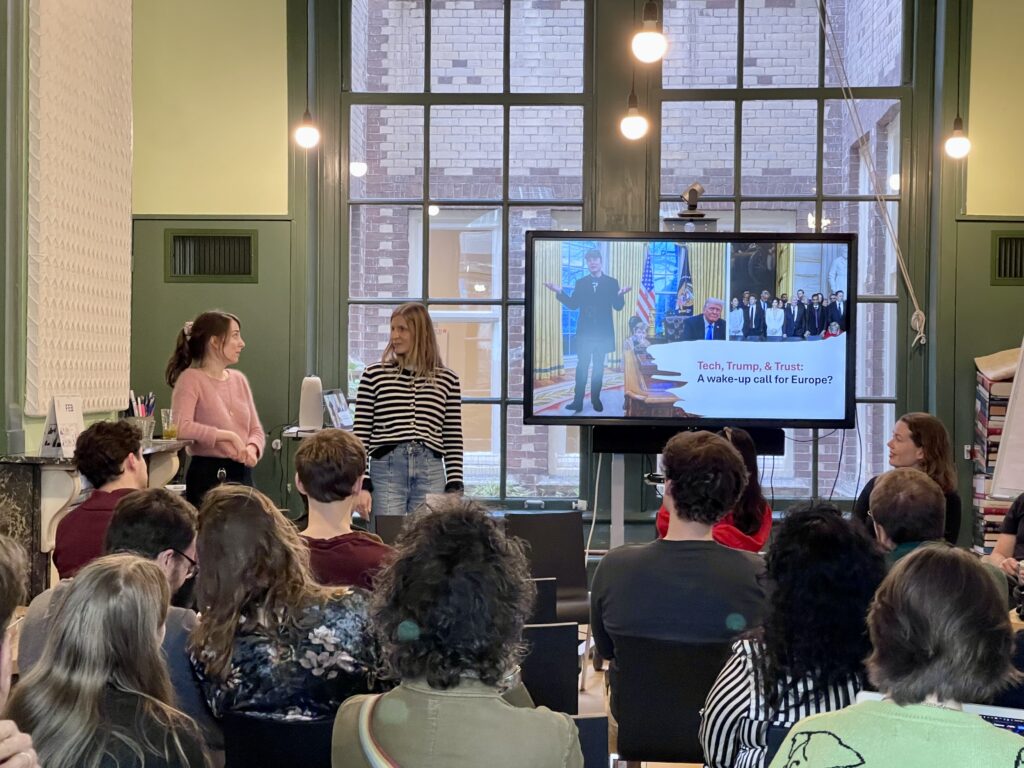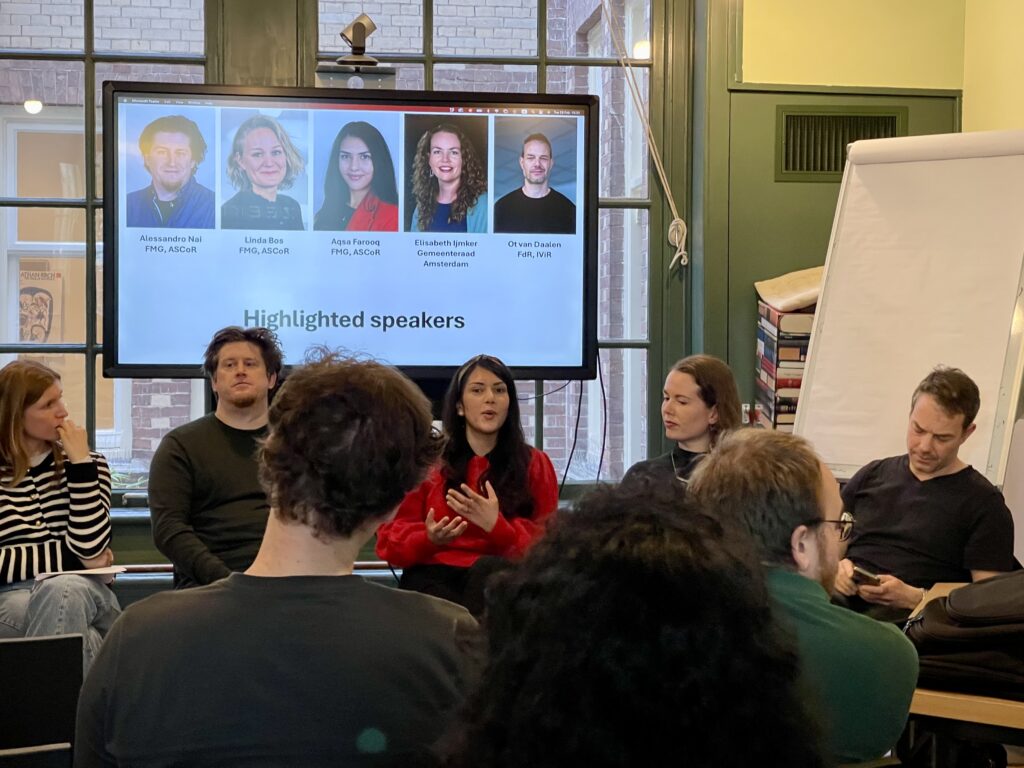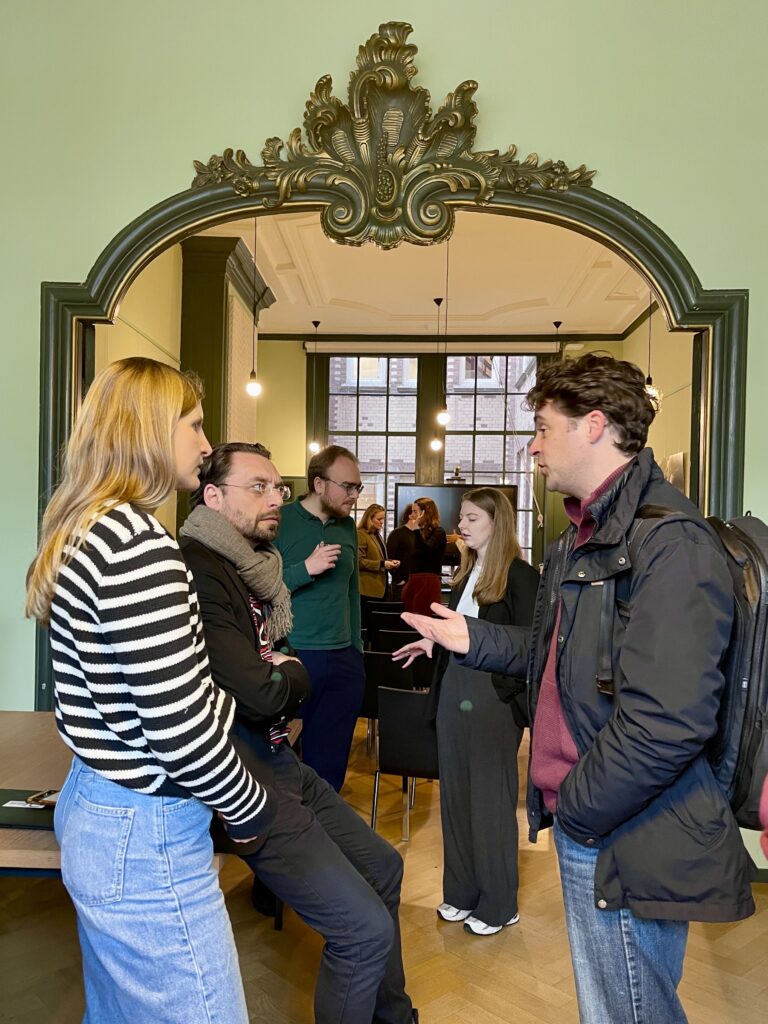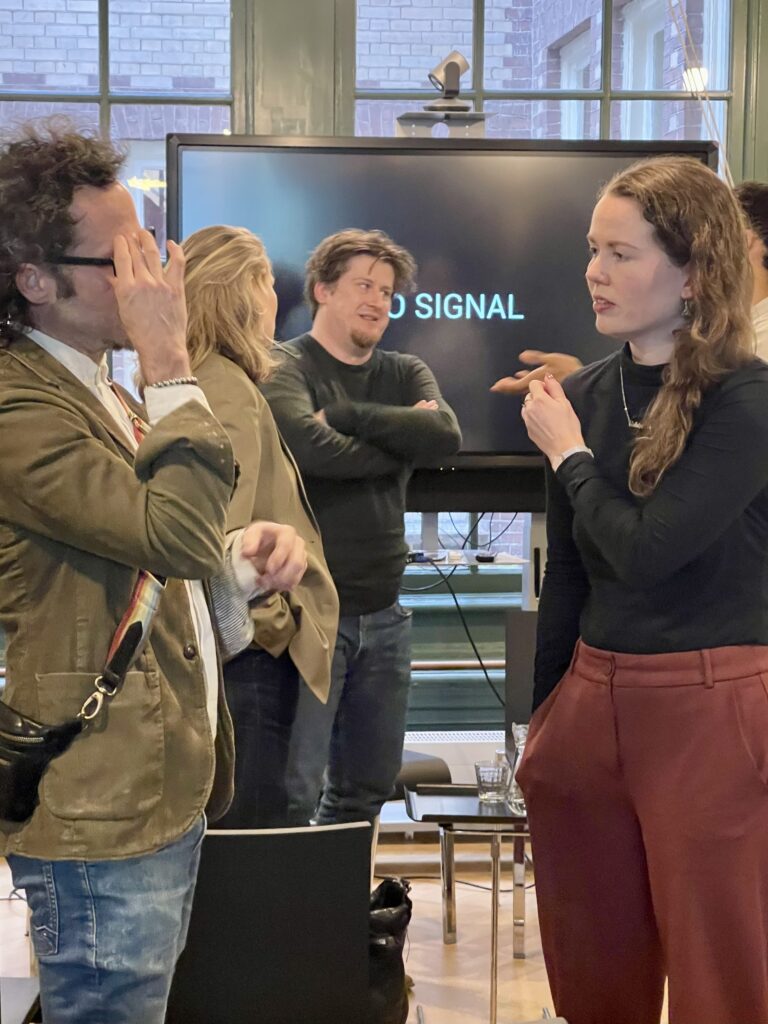Since his inauguration in January, US President Donald Trump has been engaging with tech CEO’s like Elon Musk and Mark Zuckerberg more publicly and closely than ever. Does this affect trust in institutions and democracy? And how can we learn from this in a European context?

Together with the Research Priority Area Trust in the Digital Society, we hosted a discussion round about this current issue with researchers Alessandro Nai, Linda Bos, Aqsa Farooq, and Ot van Daalen from the University of Amsterdam. In addition to the academic experts from various disciplines, the discussion round was joined by Elisabeth Ijmker, a member of the municipal council (Gemeenteraat). The session was moderated by postdoctoral researchers Linda Weigl and Mónika Simon and took place at the Institute for Advanced Study.
Teflon Trump: Is Anything Going To Stick?
Are global politics headed to a point where leaders grow increasingly immune? The phenomenon of “Teflon Trump”, as Associate Professor and political scientist Alessandro Nai calls it, raises important questions about trust and the changing dynamics of political support. He highlights the stability of the opinion on Trump among his followers, despite attempts of character assassinations and the historic 34 felony count that he was convicted of in 2024. The core dynamic at work here is Trump’s disposability: Without having a consistent set of beliefs, he cannot successfully be attacked.
A New Elite: Tech Bros in Government
Linda Bos discusses the paradox of populist leaders like Trump. Populist ideology aims to appeal to the general majority of the population and generally opposes the elite. The definitions and boundaries of these groups are constantly changing under leaders like Trump. Despite being part of the elite himself, he positions himself among the people through his use of simplified language and accessible solutions to complicated issues, contributing to the trust in him.
Elisabeth Ijmker points out the increasing trend of “tech bros” entering government roles and asks: Is this what the people want? She has noticed a vast increase in discussions about privacy concerns over the last five to six years. As governments outsource all kinds of services to tech companies, frequently based in the US, it is important to recognize that technology is political. It raises questions about privacy, data outsourcing, and the political implications of relying on American tech companies. The debate over digital autonomy and European tech investment is becoming more prominent.

Trust and Elections: US and EU
Postdoctoral researcher Aqsa Farooq raises concerns about AI literacy and its impact on trust in elections. AI literacy matters when it comes to how confident people feel about using AI. Research has shown that individuals feel like they are in a strong democracy even when they come across AI-generated content as this gives them the sense of being able to access all kinds of information, even AI-generated. Problems arise when AI-generated disinformation circulates. AI literacy is also connected to perceived knowledge. Individuals often feel like they can avoid AI-generated content and believe they are less affected by it than others.
Ot van Daalen, Assistant Professor in Information Law and Lawyer at Root Legal, discusses the risks of e-voting and its impact on (dis-)trust. Operating from an assumption that transparency is crucial for trust, Ot argues that the technology used in electronic voting lacks sufficient verification due to black boxes and opaque processes. During an election, a system that replaces those in power, it is especially crucial to have transparent verification. The only currently reliable technology for voting remains the paper ballot.
A Wake-Up Call for Europe?
Although it is nothing new that technological power is to an extent political power, it has become much more visible with Musk’s recent influence in US and German politics. Is this the beginning of an infiltration and possible inability for Europeans to separate technology from politics in the future? Elisabeth suggests that Europe might be facing a wake-up call regarding digital autonomy and tech regulation. The geopolitical implications of tech power are becoming undeniable, now that some parties point out that refusal of certain technologies could have impacts on international trade and military relations.
Alessandro notes that we are observing a shift in global politics that goes beyond Trump and Musk, an ideological shift away from content and toward form. Trust is no longer supported by evidence but rather by appearances.
In politically turbulent times like these, paying attention to these global dynamics is crucial to navigating changes and addressing challenges in our political landscape.
Looking Forward
This discussion round is the first in a series of events about technological disruptions, shifting political landscapes, growing polarization, and trust in institutions. In a similar line, the RPA Trust in the Digital Society is accepting submissions and proposals for the upcoming Amsterdam Trust Summit 2025 until 14. March.
We thank the RPA Trust in the Digital Society for their collaboration and the Institute of Advanced Study for their hospitality.


